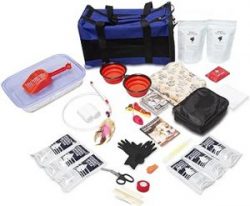Our Broken Trust With Animals
Our Broken Trust With Animals
The large animal organizations and the public money.
It is said that in America, anything the imagination can conjure up can be attained with persistence. In a society where we boast of freedom and clearly recognize the importance of our leadership in the world, one must be increasingly disillusioned by the simple things in life that prevent us from moving ahead even further. We can successfully put roving monitors on mars,, cure diseases in short order, win wars in 100 days or less and have the marketing prowess to alter human life around the globe.
The suffering of animals is a deep and quiet thing; and yet, millions of people hear, and care and hope to answer this call. More than 3,000 non profits dedicated to the same have logged an estimated 40 Billion man hours in the past 20 years all while Americans are donating billions of their dollars to animal welfare organizations who promise that they are relieving animal suffering.
But are they? Or, is the trust being placed in them by their donors, being betrayed?
The overpopulation of dogs and cats is the major source of the suffering and death of 8 million animals a year in America. This is a problem for which the cause is well known, the consequences of not solving it are well known, and the tools for solving it are within reach. And yet, little headway is being made. It is one of the simplest problems to correct.
We hear a lot about increasing adoptions, and this is important; but where is the effort to prevent the overpopulation in the first place? The ASPCA, for example, doesn’t even take in strays, so their adoption program, while valuable, is not addressing the problem in a significant way. They inaugurated their “no-kill” policy in order to appeal to more donors. That doesn’t mean that animals are not being killed-they are just being killed someplace else. And until the overpopulation problem is solved, this dirty work must be done.
Why is it that almost everyone knows about the ASPCA and HSUS, for example, but, by and large, the public still doesn’t know that it is not OK to breed their pets or to allow an accidental breeding? Why don’t people know about puppy mills or where pet shop puppies come from? The big organizations have utterly failed to get this message across. Why?
They have the funds. In New York City, billboards, subway and bus ads abound. “Think out of the box” is the title under a picture of a puppy or kitten peeking out of an ASPCA carrier. Not one ad, or sign, or billboard informs the public about the overpopulation epidemic and its tragic consequences. Why? Again, the large organizations have failed to convey this important message to the public, in schools and to our elected officials.
Our society is continuing to devote a sizable portion of our existence to finding out the problems that face us and realize that we must re focus our efforts on the TRUE meanings of responsibility, compassion and to understand that even though only one voice, each human is part of a societal choir of sorts that has far reaching consequences for everyone in that given society. I was once told that we can never expect to win the game until all teammates play by the same rules. It certainly holds true in this argument.
Nobody within the ranks of these seemingly noble efforts will disagree with the facts that nobody wants to work together. They defend their ideas as if it were a pharmaceutical corporation with a cure for cancer. The compassion issue is everywhere in the animal protection movement. ‘Compassion This – Compassion That.” But all the large animal protection groups continue to bicker, argue, point fingers and sling mud between themselves. The anger and jealousy and vindictiveness among the smaller rescue organization efforts is mammoth in scope. Unimaginably detrimental to all these efforts is clearly the complete lack of true compassion – at least a real focus on their actual goals. Of course, politics, egos and agendas play a large part in covering up any real compassion that may be earned or even really exists.
We are not advocating the end of the big organizations or even the reduction of the six-figure salaries being awarded their chief executives. Why shouldn’t someone who saves an animal get paid as well as someone who is willing to send them to slaughter or pave over habitat? But, in any business and most other endeavors, a chief executive who does not do the job is either demoted or fired. The big animal organizations have not done the job. Should they continue to get paid?
Too much of their funding is channeled back into their own development, feeding their own labyrinthine gullets. These organizations have become creatures with bigger and bigger bellies and weaker arms and legs and smaller hearts to get things done. If we were truly compassion driven, we would not be so uninformed as to assume the large national groups were truly out to help the animals with their millions and millions of dollars laying around in bank accounts while much needed and well deserved programs go unfunded and lives continue to be lost. If we were truly compassion driven, we would educate ourselves on the facts of these issues so as to clearly understand our individual roles in prevention.
Sharing the blame and the shame is the American Kennel Club, which issues registration papers indiscriminately to decent breeders and to puppy mills alike. They sponsor the suffering of thousands upon thousands of animals. No big organization wants to take them on. Why? We must admit the problems are ours and ours to solve. Like our fanatical minority and religious leaders, our large animal welfare organizations need their victims. Absent crime and imaginary situations against their people and teachings, these organizations disappear — this means jobs. Jobs = egos. As long as they can convince those who don’t know any better, they will survive.
The picture as of today, is one of an overworked underfunded and failing animal control effort, schools failing to institute any form of humane education programs into a curriculum at any level, the media won’t cover the real stories of HOW to prevent this and see a productive future, their readers don’t want the stories of puppies and kittens dying as it’s too upsetting to read. Finally, all those who are sitting at their desk right now in any animal protection organizations while reading this are going to be outwardly angered that One would accost them in such a manner, but are not willing to correct the situation as it stands, to ensure they receive a pay check next week.
The major animal welfare organizations are not useless. The world is a better place with them than without them, but they fall short. Too short. To whom much is given, much is expected.
Randy Warner has been featured in People Magazine, LA Times, NY Post, David Letterman Show, CBS Evening News and more. Warner has a series of handbooks to help you become the best humane educator possible. Great for schools, libraries, animal protection agencies and family discussions. See http://www.21stcenturycares.org/
_


 February 5, 2016
February 5, 2016 







